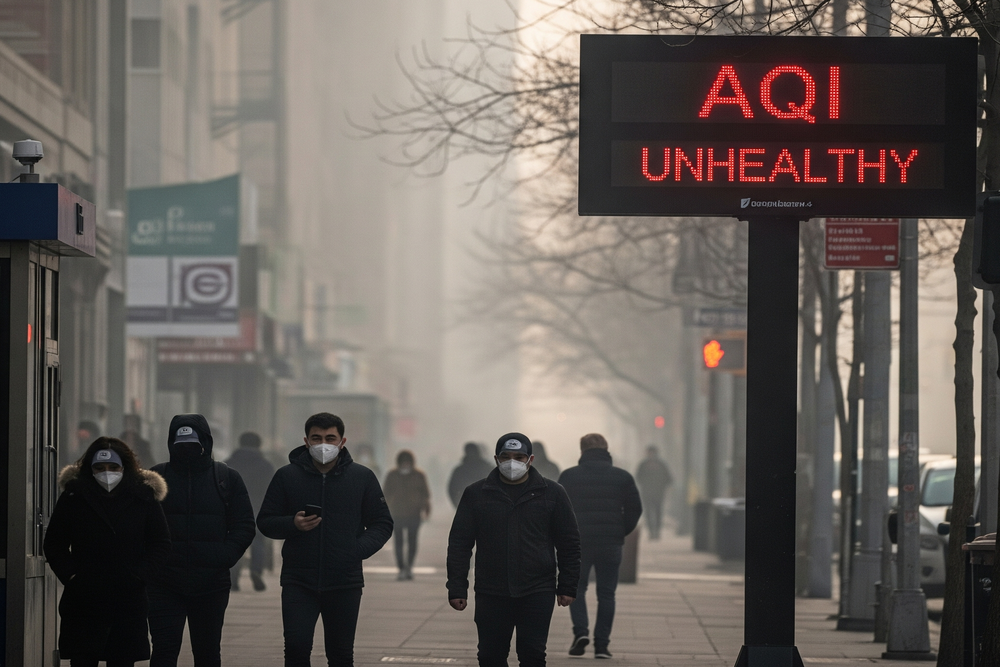The Impact of Air Quality on Your Health and How to Protect Yourself
Tessa Taylor
2025-11-01
6 min read

We often take breathing for granted, assuming the air that fills our lungs is harmless. However, the quality of the air we inhale has a profound and direct impact on our well-being, influencing everything from our respiratory system to our mental clarity. Understanding the invisible threats in the air and learning how to protect ourselves has become an essential part of modern health awareness.
What's in the Air We Breathe?
Air pollution is a complex mixture of solid particles, liquid droplets, and various gases. The most concerning pollutants for human health include particulate matter (PM2.5 and PM10), ground-level ozone, nitrogen dioxide, and sulfur dioxide. These substances originate from numerous sources, such as vehicle exhaust, industrial emissions, wildfires, and even common household products. The smallest of these particles, known as PM2.5, are particularly dangerous because they are fine enough to penetrate deep into the lungs and enter the bloodstream, traveling to organs throughout the body.
Short-Term and Long-Term Health Consequences
The effects of poor air quality can manifest immediately or develop over many years. Short-term exposure to high levels of pollution can cause immediate symptoms like coughing, wheezing, shortness of breath, and irritation of the eyes, nose, and throat. For individuals with pre-existing conditions like asthma or chronic obstructive pulmonary disease (COPD), a day with poor air quality can trigger severe attacks and lead to hospital visits. The long-term consequences are even more alarming. Years of breathing polluted air contribute to the development of serious chronic diseases. Medical research has established strong links between prolonged exposure to air pollution and an increased risk of heart disease, stroke, lung cancer, and respiratory infections. It can accelerate the aging of the lungs and lead to a permanent loss of lung capacity. Beyond the physical effects, emerging evidence highlights the connection between air quality and mental health. Studies suggest that exposure to air pollutants can increase inflammation in the brain, contributing to a higher risk of depression, anxiety, and cognitive decline, including dementia. The constant stress on the body from fighting off pollutants can disrupt sleep patterns and impact overall mental resilience.

Monitoring Air Quality: Your First Line of Defense
One of the most powerful tools you have is information. Learning to monitor the Air Quality Index (AQI) in your area can help you make informed decisions about your daily activities. The AQI is a color-coded scale that reports the level of major pollutants in the air. You can easily access this data through weather apps, dedicated air quality apps, or government websites. An AQI value of 50 or below is generally considered good, while levels above 100 are unhealthy for sensitive groups, and higher numbers pose a risk to everyone. Making it a habit to check the AQI, just as you would the weather forecast, allows you to plan ahead. On days with poor air quality, you can take proactive steps to limit your exposure and protect your health. This simple practice empowers you to avoid the worst effects of pollution before they can cause harm.
Practical Steps to Protect Yourself
Once you know the air quality is poor, there are several effective strategies you can use to minimize your exposure. When the AQI is high, it is best to limit your time outdoors, especially strenuous activities like running or cycling that cause you to breathe more deeply. If you must go outside, consider wearing a well-fitting mask, such as an N95 or KN95 respirator, which is designed to filter out fine particulate matter. Improving your indoor air quality is just as important, as pollutants can easily seep into homes and buildings. High-efficiency particulate air (HEPA) purifiers are highly effective at capturing airborne particles, including dust, pollen, and the dangerous PM2.5 pollutants. Placing purifiers in frequently used rooms, particularly the bedroom, can create a sanctuary of clean air and significantly reduce your overall exposure, especially while you sleep. Simple household habits can also make a difference. Keep windows and doors closed on high-pollution days. Use exhaust fans in your kitchen and bathroom to vent pollutants outside. Regular cleaning, including vacuuming with a HEPA filter and dusting with a damp cloth, helps remove particles that have settled on surfaces. Avoiding the use of aerosol sprays, scented candles, and harsh chemical cleaners can further reduce indoor air pollution.
A Commitment to Long-Term Health
Protecting yourself from poor air quality is not about living in a constant state of alarm; it’s about incorporating mindful habits into your routine. By staying informed about local air conditions, creating a clean indoor environment, and taking precautions when necessary, you can significantly reduce the health risks associated with air pollution. These small, consistent actions are a powerful investment in your long-term health, ensuring that the air you breathe supports your well-being rather than detracting from it.


